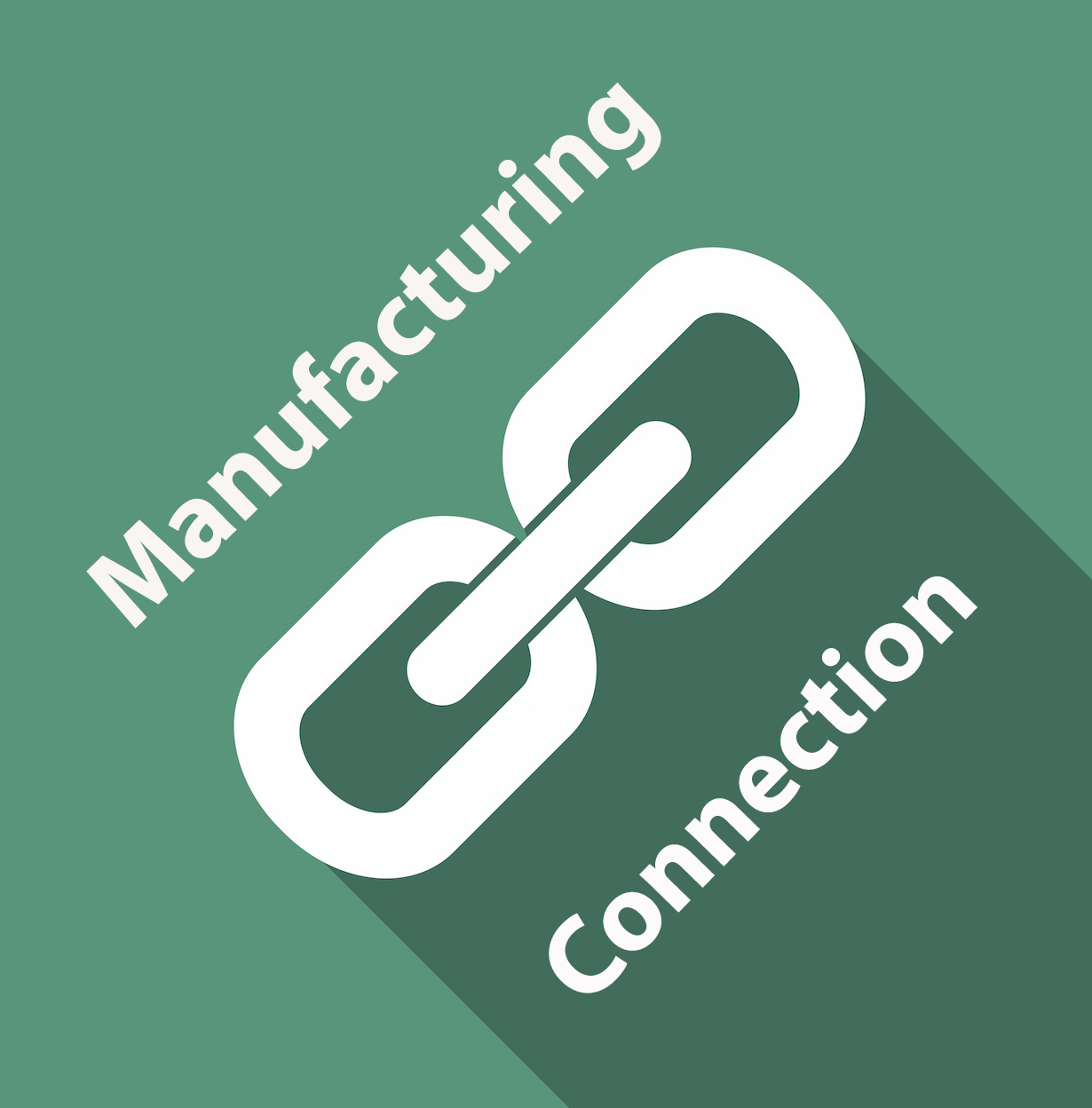
by Gary Mintchell | Feb 18, 2017 | Podcast
I was asked by an Italian magazine, Automazione Oggi, to share thoughts from America about a Trump presidency attitude toward manufacturing. I’m not part of the administration or even involved in politics, but I gave some thoughts. I also had some thoughts on some recent Open Architectures for control.

by Gary Mintchell | Dec 13, 2016 | Commentary, News
 Well, we have a new US President coming into power in January. What impact will President Trump along with a Republican House and a Republican Senate have on manufacturing? Even at this point with a month until inauguration, we are getting a glimpse, but it’s still a guessing game. Trump and Congressional leaders are not on the same page on all matters of policy, so this will be interesting to see play out.
Well, we have a new US President coming into power in January. What impact will President Trump along with a Republican House and a Republican Senate have on manufacturing? Even at this point with a month until inauguration, we are getting a glimpse, but it’s still a guessing game. Trump and Congressional leaders are not on the same page on all matters of policy, so this will be interesting to see play out.
Robert McCutcheon, Partner, US Industrial Products Leader, with PwC called yesterday to discuss a paper he has written—Five post-election topics on the mind of domestic manufacturers . This paper, part of a broader series of research and reports from the firm, looks specifically at five areas of policy that will impact manufacturers. These are Tax, Infrastructure, Military, Regulation, and Trade.
 Of these, McCutcheon told me that manufacturers are most interested not surprisingly in Tax and Regulation policies. These can have quick and direct impact on manufacturers’ bottom lines. A close third is Trade policy. I’m watching the dance that Trump has started around China—both the Taiwan issue and the Trade Pact (where the US stands to lose influence in all of Asia). So I was curious especially for McCutcheon’s analysis on these.
Of these, McCutcheon told me that manufacturers are most interested not surprisingly in Tax and Regulation policies. These can have quick and direct impact on manufacturers’ bottom lines. A close third is Trade policy. I’m watching the dance that Trump has started around China—both the Taiwan issue and the Trade Pact (where the US stands to lose influence in all of Asia). So I was curious especially for McCutcheon’s analysis on these.
What follows are taken directly from the paper. If anyone wants to share their wishes or concerns specifically about manufacturing policies (not about politics in general), the comments are open.
Five Post-Election Manufacturing Topics
Undoubtedly, there will continue to be significant questions about the future of domestic manufacturing post-election. With Republican control of both the White House and Congress, one thing seems clear: Change is coming. Here are the five key policy discussions that could have significant implications for domestic manufacturing over the next four years:
Tax
The results of the 2016 election will have significant impact on the direction of tax reform over the next four years. President-elect Trump has stated that one of his top priorities is comprehensive tax reform to significantly lower individual and business tax rates. Under his proposed plan, the top individual tax rate would be lowered from 39.6 percent to 33 percent, and the US corporate tax rate would be lowered from 35 percent to 15 percent. Owners of partnerships, S corporations, and other “pass-through” business entities could elect to be taxed on their pass-through business income at a flat rate of 15 percent, rather than under the regular individual tax rates. US-based manufacturers also would be allowed to elect full expensing of plant and equipment (with no deduction for interest expense). President-elect Trump also has proposed a 10 percent “deemed” repatriation tax on the foreign earnings of US-based companies.
President-elect Trump’s call for action on comprehensive tax reform is expected to receive strong support from Republicans in Congress, but the divisive nature of the 2016 elections could mean there will be no “honeymoon” period for the new president. House Republicans have been drafting statutory language to advance the tax reform “blueprint” that they released earlier this year, which differs in some important respects from Trump’s tax proposals. House Speaker Paul Ryan (R-WI) has said a Republican-controlled Congress could advance tax reform in 2017 by using “budget reconciliation” procedures that allow legislation to be approved in the Senate with a simple 51-vote majority, instead of the 60 votes generally needed to advance legislation.
Infrastructure
President-elect Trump has made it clear that there will be significant infrastructure investments that will undoubtedly bring benefits to the manufacturing industry in the engineering and construction sector, especially now that Trump has announced his plan to spend $1 trillion over the next decade to upgrade the nation’s roads, bridges and waterways. Lawmakers on both sides of the aisle are now hopeful they could reach agreement on at least one bipartisan matter. His plan vows to reduce bureaucracy and government red tape and to rely principally on public-private partnerships and private financing supported by the use of federal tax credits for private financiers. We should also see upstream benefits in the supply chain as infrastructure spending generally results in a significant increase in economic activity from the materials, goods and services consumed in these projects.
Trade
Trade was one of the cornerstones of Trump’s campaign, promising a radical trade agenda, and vowing to withdraw from the Trans-Pacific Partnership trade deal and renegotiate with the North American Free Trade Association. This has led many of America’s top manufacturers to urge President-elect Trump to scale back on his trade initiative and pursue a more nuanced approach to trade with China and Mexico. In an open letter to Mr. Trump, chief executives from more than 1,100 US companies warned of “an urgent need to restore faith in our vital economic and government institutions.” Many of these business leaders have expressed concerns about economic uncertainty and trade threats.
Some industries, however, may feel that a change in the US position around trade will benefit them. The steel industry, for instance, has been hit hard with anti-dumping and “unfair trade” cases for many years. A new stance on trade tariffs could significantly benefit domestic steel producers. The question regarding the ramifications of these changes, and how they will not only impact imports and exports, but also overall trade relations, remains.
Military spending
We anticipate an impact for the aerospace and defense sector as a result of the proposed increase in military spending. Plans include an increase in the Army’s active force to 540,000 troops, the Navy building a 350-ship fleet and the Air Force increasing the fighter fleet to 1,200 combat-coded aircraft. Estimates vary, but these proposals could increase the defense budget by hundreds of billions of dollars over the next four years, impacting defense contractors as well as their supply chains.
Regulation
President-elect Trump’s plans include asking all department heads to submit a list of every wasteful and unnecessary regulation, reforming the entire regulatory code in an effort to keep jobs and wealth in America, declaring a temporary moratorium on new agency regulations that are not compelled by Congress or public safety, and canceling hundreds of existing executive orders.
The US has already undergone a shale revolution which positively impacted the manufacturing sector including, but not limited to, the chemicals industry. By lifting some of these regulations, we may see more economic activity in the manufacturing sector overall. The President-elect’s pledge to reduce regulation could lead to exploration and new development as well as new pipeline projects that could not only benefit the oil and gas industry but also the downstream industries that consume much of this output as feedstock into their manufacturing processes. This could contribute to a more cost competitive domestic manufacturing environment.
Final Word
There is a lot of uncertainty around how the election results will ultimately affect domestic manufacturing. No doubt the new Trump administration, with Republican control of Congress, will result in change. We will continue to monitor policies as they develop across all five of these categories over the coming months. Stay tuned as we assess the potential impact on jobs and growth for industrial products companies in the US.

by Gary Mintchell | Feb 18, 2015 | Automation, Commentary, News, Operations Management, Safety, Safety
 I am a conservationist.
I am a conservationist.
What that means is that I have a lifestyle of conserving and preserving. Especially nature. It doesn’t mean that I’m political. Or even anti-development.
On the other hand, I have ceased being political. Whether I’m “liberal” or “conservative” (as if anyone really knows what all falls under those labels!) bores me. Don’t care for the discussion.
But it’s a weird world. Take industrial risk management. I guess that there are many “conservationists” who do not want to build the oil pipeline known as Keystone. They are afraid of oil spills.
OK, that means one of two things–either they wish to live in a petroleum-free society or they endorse shipping massive amounts of oil across our nation via rail. I’d like to see them accomplish the former. And look at the unintended consequences of rail-based shipping, especially when we as a nation do not really care about upgrading the infrastructure.
If you study the comparative risks, oops, looks like pipelines are a better option.
One of my economics professors used to say that people never really vote their economic interests because they are voting emotions. Interesting observation think about it. Maybe the conservationists are actually achieving the opposite of their desired outcome. Wouldn’t be the first time in politics that happened. Won’t be the last.
Now, I’d never tell you to rush right out and email your congressperson. Even if they had not voted already, it would be too late. I’m in favor of the movement to require congresspersons to wear jackets like those the NASCAR drivers do–there’s a patch that shows who all their sponsors are!
But I do think that no matter your politics that you should stop and think that maybe you’re supporting an outcome that is exactly opposite of what you think you are.
It’s a good business and engineering idea, too. Maybe you’re too stuck on an idea that you’ve missed the real solution.

by Gary Mintchell | Dec 3, 2014 | Commentary, News
 My friend Jim Pinto has turned from writing on automation to tackling impossible subjects such as politics and economics. His latest ponderings are on poverty and wealth in America.
My friend Jim Pinto has turned from writing on automation to tackling impossible subjects such as politics and economics. His latest ponderings are on poverty and wealth in America.
I must confess that I’m partly to blame. For the 10 years that I was editor of Automation World, he wrote a column for me on automation. We talked monthly about the subject and he always provided insightful views. When I left, the relationship left, too. Now, he’s looking at big subjects.
Take a look at his post and post your own comments.
My own view is that looking for government action to solve society’s problems will never get there. What Jim leaves unsaid is that what is really needed is not politics, but instead a change in people’s hearts.
It is from people acting, helping, giving, that solutions arise. I hear so many stories from around the world listening to TED Talks from people who have done much. There are so many cool engineering problems solved simply and elegantly. So many management issues tackled. Makes me wonder what we are all really doing with our one life.



 Well, we have a new US President coming into power in January. What impact will President Trump along with a Republican House and a Republican Senate have on manufacturing? Even at this point with a month until inauguration, we are getting a glimpse, but it’s still a guessing game. Trump and Congressional leaders are not on the same page on all matters of policy, so this will be interesting to see play out.
Well, we have a new US President coming into power in January. What impact will President Trump along with a Republican House and a Republican Senate have on manufacturing? Even at this point with a month until inauguration, we are getting a glimpse, but it’s still a guessing game. Trump and Congressional leaders are not on the same page on all matters of policy, so this will be interesting to see play out. Of these, McCutcheon told me that manufacturers are most interested not surprisingly in Tax and Regulation policies. These can have quick and direct impact on manufacturers’ bottom lines. A close third is Trade policy. I’m watching the dance that Trump has started around China—both the Taiwan issue and the Trade Pact (where the US stands to lose influence in all of Asia). So I was curious especially for McCutcheon’s analysis on these.
Of these, McCutcheon told me that manufacturers are most interested not surprisingly in Tax and Regulation policies. These can have quick and direct impact on manufacturers’ bottom lines. A close third is Trade policy. I’m watching the dance that Trump has started around China—both the Taiwan issue and the Trade Pact (where the US stands to lose influence in all of Asia). So I was curious especially for McCutcheon’s analysis on these.






